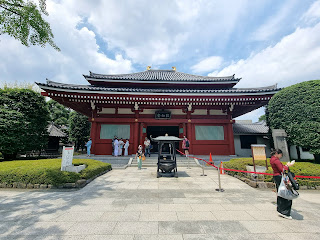The CIPARLABS team has just returned from WCCI 2024 — the world's largest conference on Computational Intelligence, Artificial Neural Networks, and Fuzzy Systems — held in Yokohama, Japan, from June 29 to July 5.
It was an exciting group experience that combined moments of learning and reflection with convivial moments where everyone could express themselves beyond academic performance.
The conference was organized at a large convention center, the Pacific Conference Center in Yokohama. The organization was lacking both in the paper review process and in logistics. Despite paying a high participation fee, no lunch was provided. The coffee break was meager and of insufficient duration for networking needs, especially in the hall where the poster session was held. Some special sessions were also organized in a haphazard manner. We expected greater participation from sponsors and companies. Apart from the poor logistical and organizational aspects, numerous interesting works were presented. The poster session featured some truly noteworthy works.
Our PhD students Sabereh Taghdisi Rastkar and Danial Zendehdel presented two papers at IJCNN (the sub-conference on Artificial Neural Networks) on optimization and prediction problems in the field of smart energy systems, specifically within Renewable Energy Communities. Our CIPARLABS research group is focusing its efforts on this topic. In particular, we are working on the design of an optimized Energy Management System with Computational Intelligence algorithms, complemented by energy variable prediction algorithms based on Deep Learning techniques. The design is conceived to fully comply with the technical requirements of the major European countries developing Renewable Energy Communities according to the European Green Deal and NextGenerationEU funds.
The gala dinner was plentiful, and we had the opportunity to experience Japanese culture both from a culinary perspective and in customs, as is usual at conferences of this kind. The ceremony was thrilling, featuring actors in traditional Japanese costumes writing the words "Computational Intelligence" on a large canvas using Japanese ideograms. It is well known that in Japan, writing is a ritual in itself, a personal and artistic performance worth appreciating.
Japan proved to be a crossroads of cultures as distant as the Western and Eastern ones. We visited Tokyo, a commercial city hosting Buddhist and Shinto temples. Tokyo showcases the contradictions of a country that has experienced numerous influences from China, Korea, and other Asian countries, as well as from the United States. The Japanese are distinguished by their kindness and the rituals related to gratitude, so different from us Westerners. The Japanese are both very serious and very self-ironic, a reflection of the animated characters and manga whose main figures are featured everywhere.
In Tokyo, among many places, we saw crowded districts like Shibuya and visited the old quarter full of small venues for nightlife. We also visited the Sensō-ji (金龍山浅草寺, Kinryū-zan Sensō-ji), a Buddhist temple complex located in the Asakusa district.
With the limited time available, we also visited Karakura, another area rich in Japanese gardens and Shinto and Buddhist temples.
In conclusion, going to Japan and participating in such an event was well worth it. We hope to repeat such experiences in the future.
See you at IJCNN 2025, which will be held in our home country, Rome, at the end of June 2025.




























.jpg)




No comments:
Post a Comment